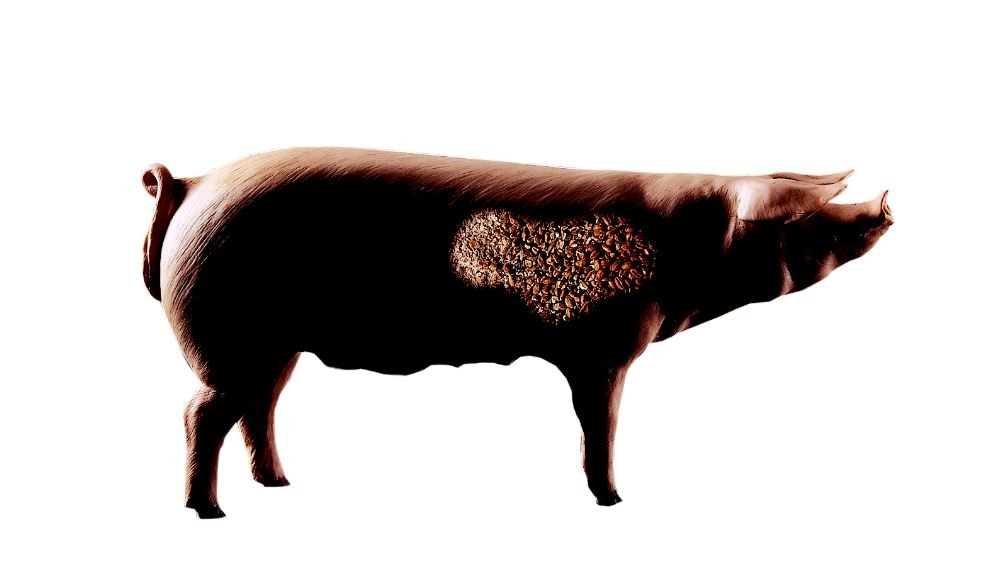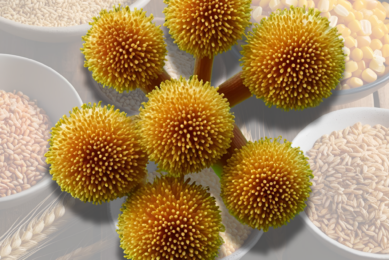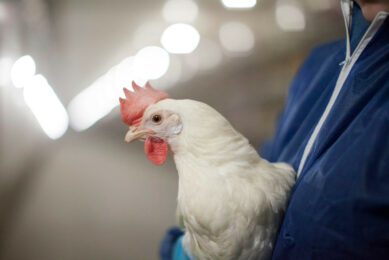Mycotoxins in pigs: Impacts on health and production costs

Mycotoxins cause a variety of symptoms in pigs, and their effects may have long-term impacts on pig performance and health. Adding a mycotoxin binder can prevent estimated losses in daily gain and feed conversion ratio.
The gastrointestinal tract is one of the first organs to encounter mycotoxins when pigs are exposed to contaminated feed. Here, mycotoxins may be absorbed and transferred into the rest of the body, or they may have direct effects on the epithelial cells that result in inflammation, necrosis, and even changes to gut level immune responses (Alizadeh et al., 2015). Oxidative stress related damage of the intestinal tract is another area that recent research has focused on. Oxidative stress, or the imbalance between reactive oxygen species and antioxidant substances, can result in damage to lipids, proteins and DNA (Frankic et al., 2008). Research shows that mycotoxins such as deoxynivalenol (DON) can lower total antioxidant capacity as well as increase level of reactive oxygen species in intestinal cells (Wu et al., 2014; Van Le Thanh et al., 2015). As a result of these effects, damage from oxidative stress occurs. Research conducted at North Carolina State University with nursery pigs shows that mixtures of mycotoxins including aflatoxins, DON and fumonisins can result in a 22% increase in oxidative stress damage to proteins (Figure 1) as measured by protein carbonyl (Park et al., 2017).
Effect on average daily gain
When pigs consumed a mycotoxin binder* during the mycotoxin challenge, the level of protein carbonyl was 12% lower (P < 0.05) as compared to the pigs consuming only mycotoxins, thus cutting the effect on oxidative stress in half. At the intestinal level, damage from oxidative stress may result in altered villus structures, lesions, reduced gut functions and altered immunity. These changes can lead to poor performance and a loss of pig productivity. During the previously described trial by Park et al. (2017), pig average daily gain (ADG) was reduced by 14.2% when the mixture of mycotoxins was consumed alone (Figure 2). However, the inclusion of the mycotoxin binder compensated for the poor growth during the mycotoxin challenge with an increase in pig ADG by 14% (P < 0.05).
The cost to swine producers
Although mycotoxins are now more widely discussed and considered, many producers remain undereducated on the costs that mycotoxins can pose to their production system. Alltech calculated that the average mycotoxin risk level (from data collected from the 37+® Analytical Laboratory for 2017 North American corn (October 2017 through April 2018), nursery pigs may have a potential loss of daily gain by 35 g/day, a 1.4% increase in feed conversion ratio (FCR) and an overall loss in margin over feed. Further estimates for the effects of mycotoxins on grow finish pigs can be calculated based on the same mycotoxin risk. In this case, grow finish pigs may have an average estimated loss of daily gain by 91 g/day and a 5.6% increase in FCR. These effects on lowered gain and reduced carcass weight can certainly impact producer profitability.
Manage mycotoxin risk
Symptoms of mycotoxicosis can be dependent on the type and concentration of the mycotoxin involved, as well as the age or health status of the animal. However, consumption of both lower and higher levels of mycotoxins by pigs can have strong impacts on gastrointestinal health, including changes to cellular protein synthesis, a decreased villus height or increased crypt depth and increases in oxidative stress (Maresca, 2013; Alizadeh et al., 2015). The irritation and injury caused by these mycotoxins can reduce pig health and performance. To make matters more complicated, multiple mycotoxins can have greater negative effects with additive and synergistic roles on pig performance and health. As a result of the broad range of effects that mycotoxins can have on pigs, preventative measures are certainly warranted.
* Mycosorb A+ (Alltech, Inc.)
Author:
Alexandra Weaver, Alltech











